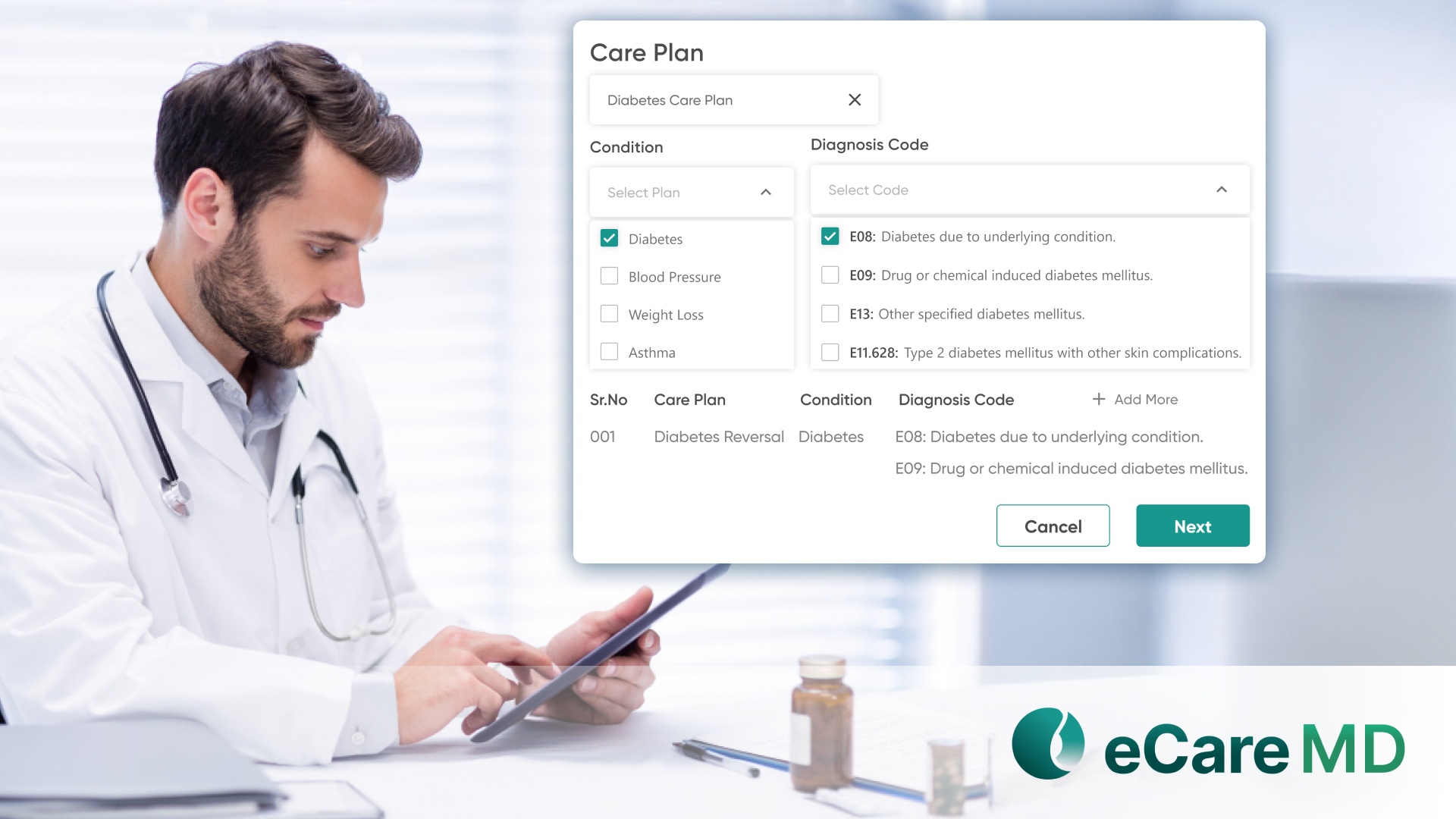Client Background
Based in Arizona, United States, the client has a primary care specialty across multiple practices, providing effective Care coordination services, and providing primary care to people with one serious condition. For continued new enrollment, they need a software solution that has automated features to save providers' time.
Business challenges
Currently, the client faces a problem while providing care services to the patients in the PCM program, as PCM needs to evaluate services like Patient enrollment, Care plan assigning, assessment, and condition identification. For these sorts of work, the client’s provider team needs to switch to an automated solution, as most of the time spent on these manual activities, the team loses precious working hours, causing repetition in work, insufficiency while managing bulk patients, etc. Below are the key business problems the client’s team has:
1. Difficulty in bulk patient onboarding
As the client provides PCM services for patients with a single chronic condition and multiple practices, required to onboard multiple patients at a single time to define health review for each patient, to manage these multiple patients, care providers has to work several hours just on patient registration, consuming significant time and effort which delays patient onboarding and subsequently care.
2. Lack of patient health assessment capabilities
Assessment of chronic conditions is a crucial part of providing PCM Services. Through these health assessments, providers can enroll patients into the PCM program by analyzing their conditions. The absence of health assessment is becoming a barrier for providers. It becomes difficult to evaluate patient health conditions quickly, which results in delays in care and affects the patient's health outcomes.

3. Obstacles while assigning manual assessments and care plans
The current workflow of care management has major obstacles in clinical care delivery in terms of assigning assessments and care plans. As the assessment and care plan is a huge help to care team members who can detect conditions at an early stage, lacking comprehensive assessment and care plans makes care providers spend more time with an unstructured format.
Solution proposed
As these business challenges occurred, clients interacted with Medarch's Business Analyst team for the eCareMD platform for a comprehensive solution to their business problems. The eCareMD software platform has the potential to manage multiple patients at a single time, with customizable Assessment and care plans for the patients. The solutions highlighted by the eCareMD platform are as follows:
Solution Highlighted
1. Quicker patient registration on the platform
The eCareMD platform has patient-centric modules for the providers to manage patient enrollment, which helps providers add multiple patients to the portal at a single time by external file upload (CSV, XLSX). This automates the client’s manual onboarding process and ensures the patient’s accurate data entry. Bulk patient onboarding gives the kickstart to the client’s business revenue generation.
2. User-friendly, customizable assessment templates
The platform has custom templates for many tasks, including custom email/sms templates, Consent forms, and screening Assessments to identify health conditions. These pre-defined templates minimize the required time to assist the patient provider and minimize the time from when the provider delivers the care plan and treatment.
3. Built-in condition-specific care plans
The eCareMd platform provides condition-oriented care plans for patients; the platform has pre-fetched conditions according to their diseases. Providers can appoint specific care plans to the patient with respect to their conditions, which allow the provider to track the patient's medical history, condition symptoms, Goals, Allergies, and Medications. With the help of these care plans, providers can easily map treatment plans for the patients.

Value Delivered:
1. Reduce 30% time on patient onboarding
With the help of bulk patient onboarding, the client's business reduces the staff effort, which saves around 30% of the daily work time, specifically on patient onboarding.
2. Quickly value delivery for the patient
Pre-defined templates add quick response delivery in patient care, helping providers to engage with patients.
3. Quality healthcare service for the patient
Dedicated health plans improve patient engagement, lead business growth, and maximize Business Opportunity.
4. Increase patient engagement
Automate processes such as Patient onboarding, Pre-defined templates, and communication to reflect more patient engagement.

